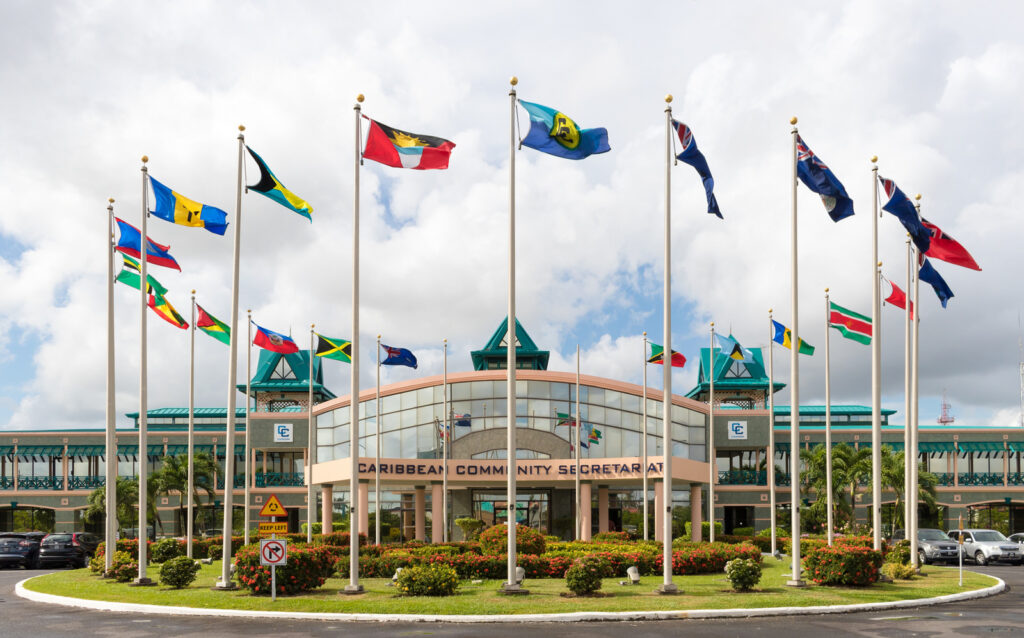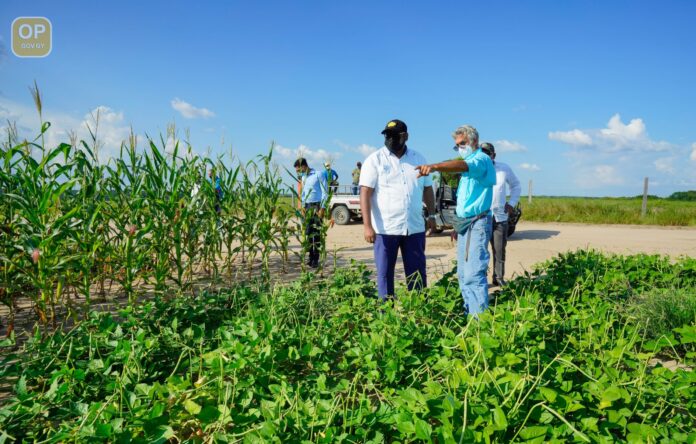Climate change has a direct and major impact on food security. As global temperatures rise, food production becomes more difficult and uncertain due to changes in weather patterns, extreme weather events, and other environmental interruptions.
These challenges no doubt have wide-reaching implications for food supplies around the world. This is especially true since food production today is impacted by rising temperatures, frequent droughts, a decline in soil fertility, and crop destruction because of floods or storms.
The effects of climate change on food security are particularly apparent in many developing countries, including the Caribbean region, and can be seen in both the health of their citizens and the livelihoods of small farmers.
To compound the problem, the combined food import bill for the 14 CARICOM (Caribbean Community), mostly English-speaking Caribbean member countries, now stands at US$6 billion annually.
These figures represent more than 60 percent of total food consumption for almost all CARICOM members, with half of them importing more than 80 percent of the food they consume. Belize, Guyana, and Haiti are the only CARICOM nations that produce more than 50 percent of their consumption.
Recognising this, Guyana, the seat of CARICOM headquarters, has pledged US$2 million towards financing and implementing a project titled ‘Building Food Security through Innovation, Resilience, Sustainability, and Empowerment,’ introduced by the country’s President, Dr. Mohamed Irfaan Ali.
The ambitious food security project will also benefit from the US$100 million line of credit under the CARICOM Sustainability Agriculture Credit Facility, which uses Republic Bank Limited as a lender, and the US$28 million in financing that the United States government pledged to Caribbean countries last year.

The project, which is more popularly known as 25 by 25, is a regional pledge taken by CARICOM heads to increase food security by reducing the regional food importation value by at least 25 percent by 2025.
“This is not an individual country trying to achieve something; this is us as a collective. This is about us being successful together. We cannot advance this if the commitment and full participation are not there,” President Dr. Ali said.
Individual responsibility
To achieve this, each country has a responsibility to ensure that efforts are made to mitigate the effects of climate change on food security.
It is therefore essential that governments and organisations take proactive steps to develop strategies for food production and access that can better withstand extreme weather events and climate variability.
President Ali said, “These efforts should include investment in agricultural infrastructure, diversification of crops and food sources, food storage systems designed for long-term preservation, and training for local farmers on sustainable agriculture techniques.”
In Guyana, for instance, investments have been made in purchasing more equipment, expanding aquaculture, livestock development, and large-scale commercial cultivation of horticultural crops, fruits, and vegetables, among others.
The cultivation of corn and soya is one of the major projects undertaken in Guyana. Commencing in 2021, the aim of this project is to make the country self-sufficient in the production of corn and soya by 2025.
The government has also embarked on a black belly sheep project, which aims to decrease the importation of lamb and mutton products into the region.

There is also a Black Giant Poultry Programme currently being undertaken that targets vulnerable groups, especially single parents.
And with the growing demand for farm-raised shrimp across the world, the government launched in 2021 a strategy to enhance the production of brackish-water shrimp for several stakeholders in the agriculture sector.
The Guyanese government is also undertaking other agricultural projects simultaneously that aim to increase production of black eye peas, wheat, honey, and coconut, among others.
Guyana’s Minister of Agriculture, Zulfikar Mustapha, touted the need for investment in agriculture, especially in these uncertain times.
As a major supporter of the Caricom food security initiative, Mustapha said Guyana is already doing its part, and others should quickly follow suit.
“Recognising the importance of implementing initiatives that address food and nutrition security, the Government of Guyana has increased the budgetary allocation to the agriculture sector by 150 percent.”
In this year alone, the Guyanese government allocated GYD 33.2 billion for the agriculture sector. Last month, another GYD$5.6 billion was approved for the sector to expand cultivation and production to reduce imports, increase exports, and foster diversification.
Operate in unison
During the recently held Caribbean Agri-Food Investors Conference, Guyana’s Mustapha underscored the importance of investments in the regional agricultural system. This, he said, would further ensure food security and promote wealth generation for agriculture operators.
“As the region seeks to reduce its exposure to food-price inflation among a slew of other negative externalities, reduce its high dependency on extra-regional imports, and achieve the 25 percent by 2025 goal, it is crucial that all key agri-food players operate in unison.”
The agriculture minister noted that, from an investment perspective, the CARICOM Region’s huge food import bill can be seen as a unique opportunity for stimulating production in the region and increasing cross-border investments in targeted agricultural enterprises.
A recent food security and livelihoods survey conducted by the World Food Programme and CARICOM in the Caribbean region revealed that 3.7 million people, or 52 percent of the population of the region, remain food insecure.
The survey also revealed that 42 percent of households were affected by climate-related hazards in the 12 months prior to the survey. These events continue to have a huge impact on climate-sensitive livelihood activities such as agriculture and fisheries.
Director of the Directorate of Single Market and External Trade at CARICOM, David Prendergast, said food insecurity is having major effects on the socio-economic welfare of citizens throughout the region. The solution, however, can only be accomplished through joint efforts by all regional member states.
‘This can include the planning and execution of comprehensive, sustainable, actionable solutions geared towards building resilience against climatic conditions and future market disruptions,” he added.
The survey’s results are a reminder of the importance of the region’s agenda to reduce imports, which includes strengthening food systems in the Caribbean so that they are resilient and adaptive to shocks and building on measures to address the affordability, accessibility, and availability of livelihood inputs.
Already, countries such as Belize, Barbados, Trinidad and Tobago, Dominica, St. Vincent and the Grenadines, Suriname, Dominica, and Jamaica have made significant advances in the production of commodities such as ginger, turmeric, corn, root crops, fruits, cocoa, meat, fish, eggs, and dairy.
This story was published by Caribbean News Service with the support of the Caribbean Climate Justice Journalism Fellowship, which is a joint venture between Climate Tracker and Open Society Foundations.